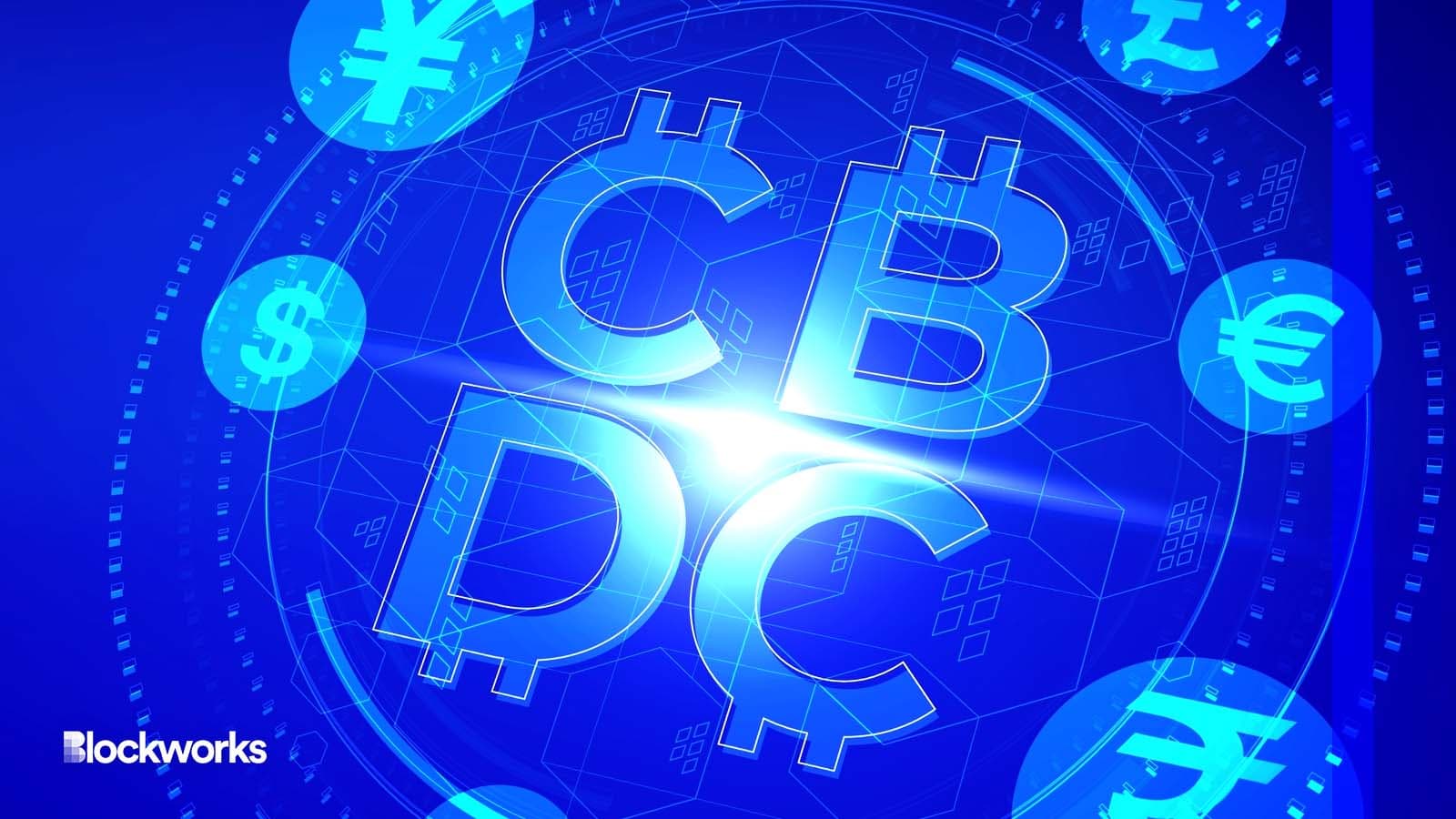CBDCs Are Gaining Steam, Though Results May Vary
Nigeria’s eNaira has been called a “dark experiment…with deadly consequences”

WindAwake/Shutterstock.com modified by Blockworks
Countries are looking to build their own central bank digital currency — though results may vary.
Roberto Campos Neto, president of Brazil’s central bank, said at BTG Pactual’s CEO Conference on Friday that the pilot for his country’s digital currency will “start right now.”
The project is likely to be ready for its rollout by December of this year.
Banks have been widely cooperative with the project, according to Campos Neto, who added that central bank digital currency (CBDC) implementation will allow each bank to individually issue the state-sanctioned digital asset.
Alongside the development of digital currencies, the Brazil banking head referred to two other prominent projects said to shape the future of finance: PIX, a fiat payments initiative, and Open Finance — a project founded on the principle that customers should own their own financial data.
“I think these three things can change the history of financial intermediation in Brazil, transforming our system into something efficient and today in the world there is no one so advanced,” Campos Neto said.
In Japan — which has been notoriously strict on cryptocurrencies — the country’s central bank is planning to pilot its “digital yen” in April.
Proof of concepts will be executed in March to test feasibility and basic functionality, the Bank of Japan said in a statement.
Private businesses and banks — including three of Japan’s largest banks — will participate in the trial. Transactions are set to to be simulated, meaning no actual retail and consumer transactions are designed to be made during the pilot.
“Whether to issue a CBDC should be decided by discussions among the Japanese public,” the Bank of Japan said. “With a view to facilitating such discussions, the [bank] will continue to make thorough preparations to respond to changes in circumstances in an appropriate manner.”
Other CBC programs have fared quite differently. Nigeria’s CBDC program has been called “a dark experiment…with deadly consequences.”
The eNaira first launched in October 2021, meeting a chilly reception from Nigerians. It hasn’t been the only hurdle CBDCs around the world have gone up against.
After the country’s citizens balked at adopting the eNaira and continued to use cash, its central bank began to replace high denomination cash bills in the economy, Nick Corbishley, a financial journalist, tweeted.
The sentiment led to businesses shuttering and angry protests, he said.
“Unless stopped in its tracks, this monetary experiment is coming to all of us, one way or another,” Corbishley tweeted.
About 114 countries have explored CBDCs, according to Atlantic Council’s CBDC tracker. Eleven countries have fully implemented a digital currency, and 17 have CBDCs in the works.
Get the news in your inbox. Explore Blockworks newsletters:
- The Breakdown: Decoding crypto and the markets. Daily.
- 0xResearch: Alpha in your inbox. Think like an analyst.






